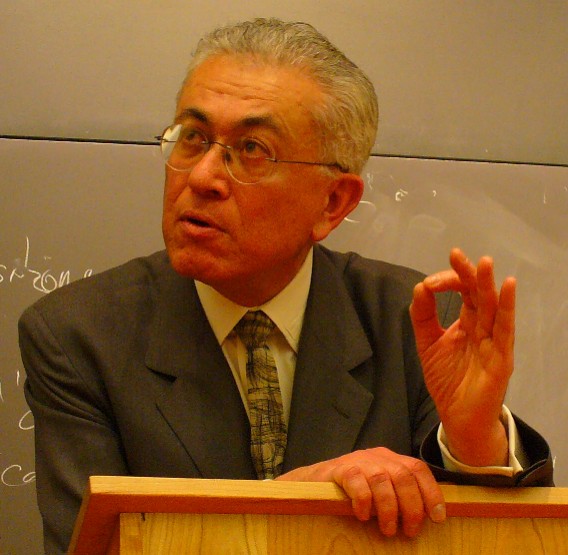Fuente: The Self Awakened: Pragmatism Unbound (2007), p. 69
Roberto Mangabeira Unger: Frases en inglés
Fuente: The Critical Legal Studies Movementː Another Time, A Greater Task (2015), p. 15
Quoted in David Remnick, The Bridgeː The Life and Rise of Barack Obama (2010), p. 185
On Barack Obama
Fuente: Law in Modern Societyː Toward a Criticism of Social Theory (1976), p. 242
Fuente: The Self Awakened: Pragmatism Unbound (2007), p. 80
Fuente: Plasticity Into Power: Comparative-Historical Studies on the Institutional Conditions of Economic and Military Success (1987), p. 12
Fuente: Plasticity Into Power: Comparative-Historical Studies on the Institutional Conditions of Economic and Military Success (1987), p. 160
Fuente: Social Theoryː Its Situation and Its Task (1987), p. 7
Fuente: False Necessityː Anti-Necessitarian Social Theory in the Service of Radical Democracy (1987), p. 97
Fuente: False Necessityː Anti-Necessitarian Social Theory in the Service of Radical Democracy (1987), p. 564
Fuente: The Self Awakened: Pragmatism Unbound (2007), p. 123-4
Fuente: The Religion of the Future (2014), p. 29
Fuente: Democracy Realizedː The Progressive Alternative (1998), p. 126
Quoted in David Remnick, The Bridgeː The Life and Rise of Barack Obama (2010), p. 185 (explaining the nature of Obama's participation in the two seminars that Obama took with Unger while studying at Harvard Law School)
On Barack Obama
Fuente: The Self Awakened: Pragmatism Unbound (2007), p. 57
Fuente: The Self Awakened: Pragmatism Unbound (2007), p. 70
Fuente: The Religion of the Future (2014), p. 385
Fuente: Plasticity Into Power: Comparative-Historical Studies on the Institutional Conditions of Economic and Military Success (1987), pp. 12-13
Fuente: Plasticity Into Power: Comparative-Historical Studies on the Institutional Conditions of Economic and Military Success (1987), p. 12
Fuente: Plasticity Into Power: Comparative-Historical Studies on the Institutional Conditions of Economic and Military Success (1987), pp. 169-170
Fuente: Law in Modern Societyː Toward a Criticism of Social Theory (1976), p. 245
Fuente: The Self Awakened: Pragmatism Unbound (2007), p. 27
Fuente: False Necessityː Anti-Necessitarian Social Theory in the Service of Radical Democracy (1987), p. 361
Fuente: Law in Modern Societyː Toward a Criticism of Social Theory (1976), p. 266-7
Fuente: The Self Awakened: Pragmatism Unbound (2007), p. 143-4
Fuente: The Religion of the Future (2014), p. 298-9
Fuente: The Self Awakened: Pragmatism Unbound (2007), p. 134
Fuente: False Necessityː Anti-Necessitarian Social Theory in the Service of Radical Democracy (1987), p. 500
